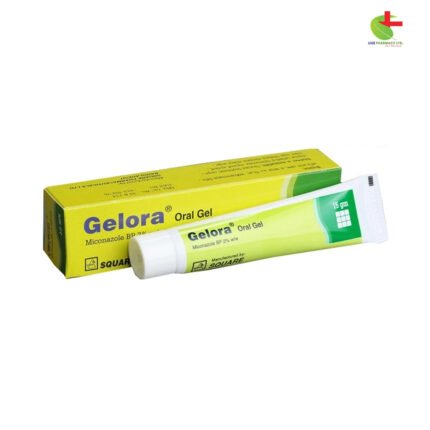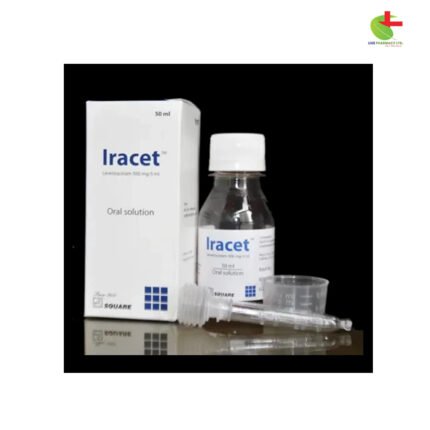Itra Oral Solution
580.00৳ Bottle (100 ml)
- Itraconazole is a versatile antifungal medication effective against oral and vaginal candidiasis, dermatophytoses (athlete’s foot, ringworm), and systemic fungal infections.
- Utilizes SUBA technology to improve bioavailability, ensuring enhanced drug absorption and efficacy.
- Prescribed in varied dosages tailored to specific conditions like tinea corporis, tinea cruris, and systemic infections such as aspergillosis and cryptococcosis.
- Works by inhibiting fungal cell membrane synthesis through Cytochrome P-450 dependent enzymes, crucial for fungal growth inhibition.
- Requires careful monitoring and consideration of interactions, contraindications, and potential side effects for safe and effective treatment.
 Brand
Brand
|
Square Pharmaceuticals PLC |
|---|---|
 Generics
Generics
|
Itraconazole |
Indications
Itra is prescribed for a variety of fungal infections, including oropharyngeal candidiasis, vulvovaginal candidiasis, pityriasis versicolor, and various types of dermatophytoses such as tinea pedis, tinea cruris, and tinea corporis. It is also effective against onychomycosis, histoplasmosis, systemic candidiasis, aspergillosis, cryptococcosis (including cryptococcal meningitis), and serves as maintenance therapy in AIDS patients to prevent fungal infection relapse during prolonged neutropenia.
Pharmacology
Itraconazole works by inhibiting Cytochrome P-450 dependent enzymes, thereby disrupting ergosterol biosynthesis crucial for fungal cell membrane integrity. This leads to abnormal cell wall formation, impaired growth, and ultimately, fungal cell death. Utilizing SUBA (Super Bio-available) technology, Itraconazole enhances bioavailability through a solid dispersion of the drug in a polymer, improving dissolution compared to its crystalline form.
Dosage & Administration
- 100 & 200 mg preparations:
- For non-systemic fungal diseases like vulvovaginal candidiasis and pityriasis versicolor, dosages range from single-day to week-long courses.
- Treatment durations vary for different dermatomycoses such as tinea corporis, tinea cruris, and tinea pedis.
- Systemic fungal infections like aspergillosis and candidiasis require higher doses and longer durations, especially in severe or disseminated cases.
- 65 mg & 130 mg preparations:
- Adjusted dosages for non-systemic fungal diseases and systemic infections, suitable for specific conditions and patient profiles.
Interaction
Avoid concurrent use of Itra with medications like terfenadine, astemizole, cisapride, and certain antibiotics or anticonvulsants, as interactions can affect drug metabolism and efficacy.
Contraindications
Itraconazole is contraindicated in patients with known hypersensitivity to the drug or severe hepatic disease. Use caution in patients taking rifampin due to potential interactions.
Side Effects
Common side effects may include gastrointestinal discomfort, headache, elevated liver enzymes, and allergic reactions. Prolonged use may lead to hypokalemia, edema, and hair loss.
Pregnancy & Lactation
Avoid Itraconazole during pregnancy and breastfeeding due to potential risks to the fetus or infant.
Precautions & Warnings
Administer Itraconazole with food to enhance absorption and avoid interactions with acid-neutralizing medications. Regular liver function monitoring is recommended for prolonged treatments.
Therapeutic Class
Itraconazole belongs to the class of drugs for subcutaneous and systemic mycoses treatment.
Storage Conditions
Store Itraconazole below 25°C in a cool, dry place, away from light, and out of reach of children.













Reviews
There are no reviews yet.